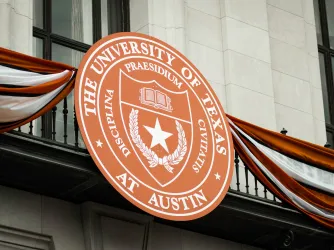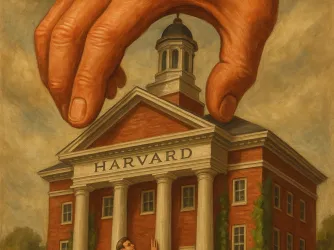Table of Contents
VICTORY: Federal appeals court rules tweeting about Cardi B shouldn’t get a graduate student expelled

Kim Diei
- Court says public university did not have a legitimate reason to punish a pharmacy student for her social media posts outside of class.
- Court denies qualified immunity to public university administrators who tried to expel her.
MEMPHIS, Tenn., Sept. 17, 2024 — In a victory for free speech rights at public universities, a federal appeals court ruled today that a graduate student’s social media posts, called “sexual,” “crude,” and “vulgar” by university administrators, are protected by the First Amendment.
In 2021, student Kimberly Diei sued the University of Tennessee Health Science Center College of Pharmacy. University administrators investigated her twice, claiming her personal social media activity was unprotected speech. Diei enjoys commenting on topics of interest to her and other young social media users, occasionally expressing her views about sexuality.
COURTESY PHOTOS OF KIMBERLY DIEI
“This ruling confirms what I’ve known all along,” said Diei. “I have a right to express myself in my private life that’s separate from school, and so do my classmates. I enrolled in pharmacy school to learn, not to have my taste in music and my thoughts on culture policed.”
Diei was repeatedly investigated by university administrators for tweeting about pop culture, and the school’s Professional Conduct Committee even voted to expel her from the pharmacy program. That’s when FIRE got involved, writing a letter to administrators that led them to reverse their decision. FIRE followed up with a lawsuit.
In one tweet, Diei contributed to a trending discussion on Twitter about the song “WAP” by Cardi B and Megan Thee Stallion, suggesting lyrics for a possible remix. In another, Diei joked about the amount of time she spends getting prepared to go out by referencing a popular Beyoncé song.
“The court affirmed what a young woman says about sexuality on social media has nothing to do with her ability to be a pharmacist,” said Greg H. Greubel, a senior attorney at FIRE. “Kimberly stood up for every American who hopes to have a personal life in addition to their professional life.”
The Sixth Circuit Court of Appeals ruled that Diei’s speech was protected and the university didn’t have legitimate grounds to punish her.
Additionally, in a blow to qualified immunity, the court emphasized that previous Supreme Court precedent and its own prior rulings put “beyond debate” that Diei’s speech, which caused no disruption, was protected by the First Amendment. Kimberly Diei may now be able to recover damages personally from the administrators who voted to expel her.
“All professional school students should be able to have a life outside of school,” said FIRE attorney Raul A. Ruiz. “This ruling should make public universities think twice before punishing students for what they say off campus about topics unrelated to their studies.”
Today’s ruling reverses an earlier decision in August 2023, when a district court erroneously dismissed Diei’s lawsuit, claiming that her posts were not protected by the First Amendment.
The Foundation for Individual Rights and Expression (FIRE) is a nonpartisan, nonprofit organization dedicated to defending and sustaining the individual rights of all Americans to free speech and free thought — the most essential qualities of liberty. FIRE educates Americans about the importance of these inalienable rights, promotes a culture of respect for these rights, and provides the means to preserve them.
CONTACT
Katie Kortepeter, Communications Campaign Manager, FIRE: 215-717-3473; media@thefire.org
Recent Articles
FIRE’s award-winning Newsdesk covers the free speech news you need to stay informed.

FIRE and ACLU of TX: University of Texas must drop unconstitutional drag ban

FAQ: Responding to common questions about the fight between Harvard and the Trump administration

George Mason University calls cops on student for article criticizing Trump


